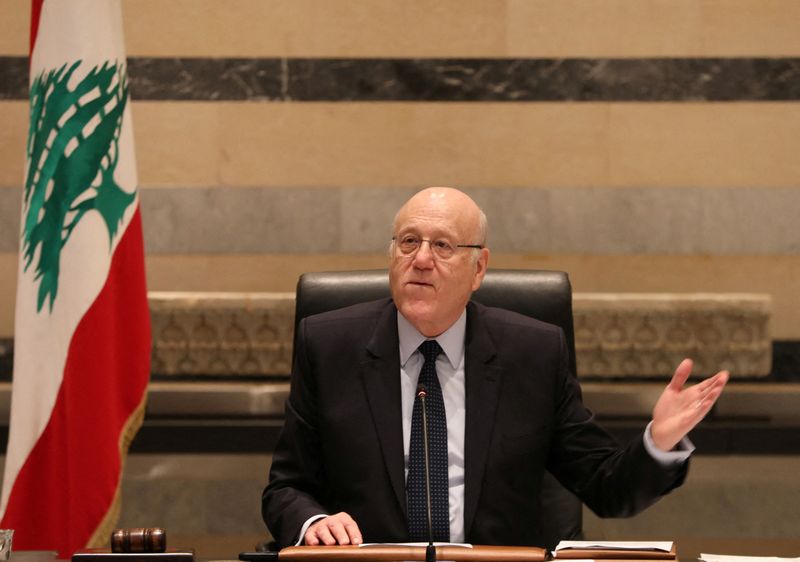BEIRUT (Reuters) – Lebanese President Joseph Aoun began consultations with representatives on Monday to appoint a prime minister in what political sources considered a heated race between current President Najib Mikati and the head of the International Court of Justice, Nawaf Salam.
The appointment of the Prime Minister is the next step in forming a new administration after the election of Aoun to the vacant presidency, which reflects a shift in the balance of power since Hezbollah suffered a major defeat in the war last year with Israel and its Syrian ally, Bashar al-Assad. -Assad was shot down.
Aoun, who enjoys the support of the United States and Saudi Arabia, must nominate the candidate with the greatest support among the 128 members of parliament.
The result is expected to be available by the end of the day.
The prime minister must be a Sunni Muslim according to Lebanon’s sectarian power-sharing system, which divides state positions based on religious affiliation, with the presidency going to a Maronite Christian.
Mikati is a billionaire businessman who served as prime minister four times. Political sources said that representatives from groups including the Iranian-backed Hezbollah group and its ally, the Shiite Amal Movement, are expected to announce their support for him to remain in office.
Salam, who has been president of the International Court of Justice since February and previously served as Lebanon’s ambassador to the United Nations, enjoys the support of factions including the anti-Hezbollah Lebanese Forces party, a prominent Christian party.
The votes of another Christian party, the Free Patriotic Movement led by Gebran Bassil, and the main Druze faction in Lebanon, the Progressive Socialist Party led by the Jumblatt family, are expected to be decisive.
Before the presidential elections that took place last week, Saudi Arabia strongly encouraged Aoun’s election, according to Lebanese politicians, representing a revival of Saudi influence in Lebanon, which had been overshadowed by Iran and Hezbollah.
But Lebanese political sources said that Riyadh did not show any preference for nominating the new prime minister.
US President Joe Biden welcomed Aoun’s election last week, saying that lawmakers “chose a path consistent with peace, security, sovereignty, and reconstruction, in partnership with the international community.”
Steps to revive government institutions
The election of Aoun and the appointment of a new prime minister are steps towards reviving Lebanese government institutions that have been paralyzed for more than two years, as the country has neither a head of state nor a government with full powers.
The new administration faces tasks that include rebuilding areas devastated by Israeli air strikes during the war with Hezbollah, launching long-stalled reforms to revive the economy and addressing the root causes of the collapse of Lebanon’s financial system in 2019.

In his previous role as commander of the US-backed army, Aoun played a crucial role in implementing the US-brokered ceasefire agreement between Israel and Hezbollah.
The conditions require that the Lebanese army deploy in southern Lebanon while Israeli forces and Hezbollah withdraw their forces.
https://i-invdn-com.investing.com/news/world_news_3_69x52._800x533_L_1419494235.jpg
Source link